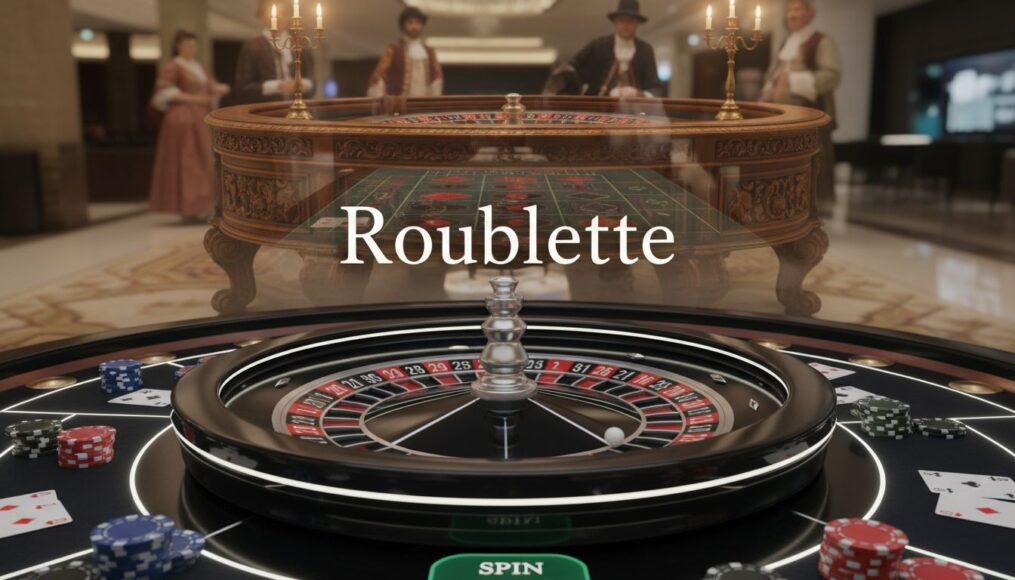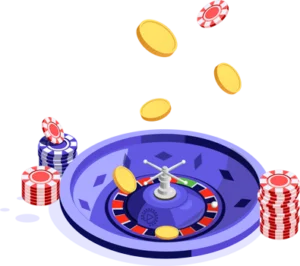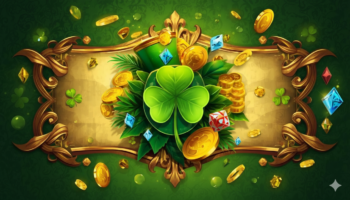The Different Histories of Roulette

Roulette, with its iconic spinning wheel and the thrilling anticipation of where the little ball will land, is a cornerstone of casinos worldwide. From the glamorous halls of Monte Carlo to the convenience of online platforms, its appeal is undeniable. But have you ever wondered about the true origins of this captivating game? While its precise beginnings are somewhat veiled in history, several intriguing theories and historical accounts shed light on how the “little wheel” came to be the beloved casino game we know today.
The French Connection: A More Accepted History
The most widely accepted theory credits French mathematician and inventor Blaise Pascal with inadvertently creating an early form of the roulette wheel in the 17th century. Pascal was attempting to invent a perpetual motion machine, and while he didn't succeed in that endeavour, his experimental device laid the groundwork for the roulette wheel's design.
The game as we recognise it began to take shape in 18th-century France. Games like “Roly Poly” and “Even-Odd,” which involved spinning wheels and betting on outcomes, were popular precursors. However, it was in Paris in the late 1700s that a game explicitly called “Roulette” (meaning “little wheel” in French) emerged, featuring a wheel with numbers 1 to 36, plus a single zero and a double zero.
A significant evolution occurred in 1843 when François and Louis Blanc introduced the single-zero roulette wheel in Bad Homburg, Germany. This modification reduced the house edge, making the game more attractive to players. When gambling was outlawed in Germany, the Blanc brothers moved their operation to Monte Carlo, where their single-zero roulette wheel became a symbol of the luxurious casino culture and helped establish Monaco as a premier gambling destination. The double-zero wheel, offering a higher house edge, became prevalent in American casinos.
Ancient Chinese Roots: A Disputed Theory
One popular, albeit largely unsubstantiated, theory suggests that the origins of roulette can be traced back to an ancient Chinese board game. This game supposedly involved arranging 37 animal figures into a square, with the sum of the numbers on the board adding up to 666. The legend claims that Dominican monks, who travelled to China, discovered this game and brought it back to Europe.
According to this narrative, these monks then adapted the square board into a circular spinning wheel and introduced the ‘zero' slot, transforming it into an early version of roulette. However, historians have found no concrete evidence of such a Chinese game or its direct transmission and adaptation by Dominican monks into the roulette wheel. While the idea is intriguing, it lacks historical backing, making it more of a captivating myth than a factual origin story.
Roman Soldiers and Spinning Shields: A Legendary Tale
Another captivating theory points to Ancient Rome as a possible birthplace for roulette. Life for Roman soldiers was often brutal, filled with battles, disease, and the constant threat of death. To alleviate boredom and pass the time between conflicts, it's said they devised games of chance. One such game allegedly involved spinning a chariot wheel or a splintered shield, placing bets on where it would stop.
While the exact mechanics of their gambling remain unknown, the concept of spinning a wheel for a random outcome bears a resemblance to modern Roulette. However, much like the Chinese theory, there's no definitive historical evidence to directly link these ancient Roman pastimes to the development of the modern roulette wheel. It's more likely a romanticised legend that highlights humanity's long-standing fascination with games of chance.
The Mystique of the Number 666
Regardless of its true origin, one fascinating aspect of the roulette wheel is the sum of its numbers. If you add up all the numbers on a standard roulette wheel (from 1 to 36), the total is indeed 666. This numerical coincidence has led some to dub roulette “The Devil's Game,” adding an extra layer of mystique and intrigue to its already captivating nature.
The number 666 itself holds various interpretations across different cultures and belief systems. It's famously associated with a biblical notation, often referred to as the “number of the beast” or the devil. However, it has also been interpreted in astrology and other contexts, leading to a rich tapestry of meanings that contribute to the game's enduring allure.
The journey of roulette from a potential scientific experiment or ancient pastime to a globally recognised popular casino game is a testament to its timeless appeal. While its exact genesis may remain a subject of debate, its evolution into the sophisticated game we enjoy today is a fascinating chapter in the history of gambling.
Most Recent News
Get the latest information








